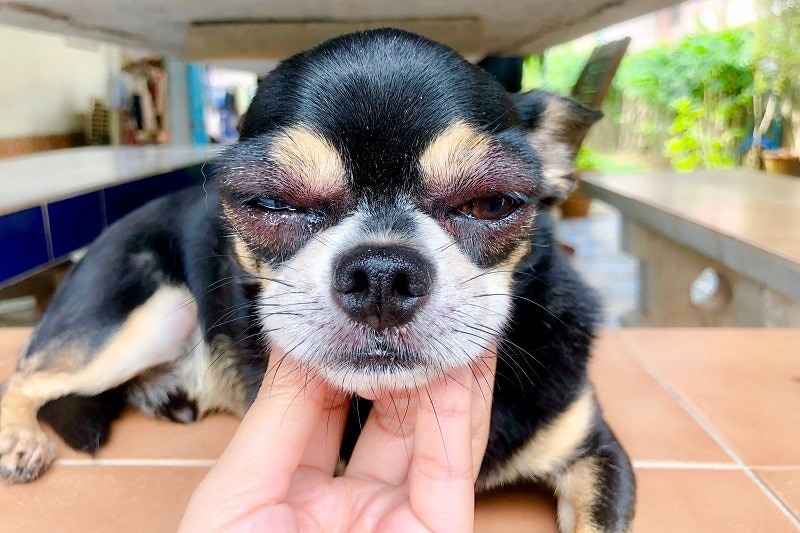9 Natural Home Remedies for Dog Skin Allergies & Itching (Expert Tips)

Updated on

If you’ve got a dog with skin allergies or seasonal or chronic itching, you likely know how irritating it can be to listen to constant scratching and chewing. If you’re like us, you’re also more concerned with the clear discomfort your pooch is experiencing and want to do everything in your power to help them. So if you’re wondering what you can do for your dog to relieve itching, you’re in the right place!
Your first step should be to visit your vet. If there is a serious issue that’s causing your dog’s itchiness, they’ll be the best resource for figuring out what it is and how to cure it. However, if your pup has less severe itching or you know the cause, you may want to resort to more natural solutions.
Below you’ll find nine natural home remedies for dog skin allergies and itching that can safely ease your dog’s itching and help reduce scratching and biting without chemicals or medications. Let’s dive in and explore the best remedies for dog skin allergies and itching!
Top 9 Home Remedies for Dog Skin Allergies & Itching:
1. Apple Cider Vinegar
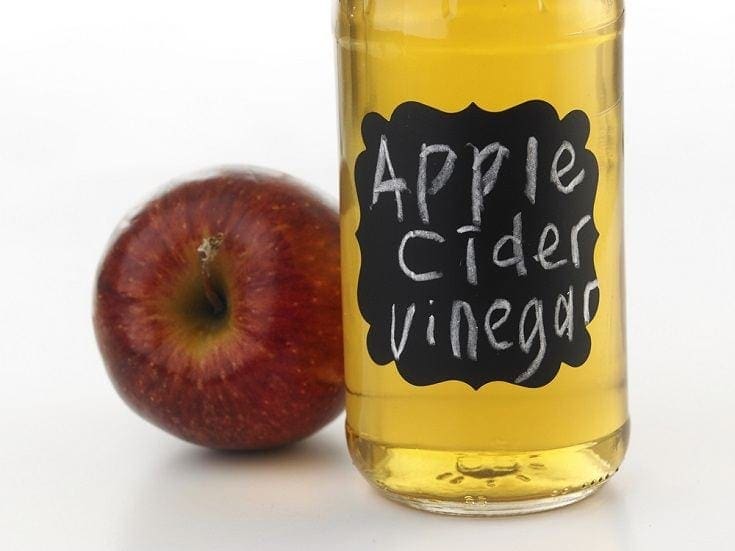
If you’re asking yourself what you can put on your dog to relieve itching, you’ll want an easy, inexpensive, and quick remedy. The first natural dog itching remedy probably won’t require a trip to the store for ingredients because apple cider vinegar is a common household product.
According to Medical News Today, apple cider vinegar’s acidity can provide relief for itchy skin, as it’s a natural antiseptic. To take advantage of its healing properties, mix one-part raw, unfiltered apple cider vinegar with one-part warm tap water. Add this mixture to a spray bottle, and spray your pup’s fur and skin where you notice the itching is worst.
Make sure to avoid getting this mixture in your dog’s eyes and ears. Always avoid open sores as well, as apple cider vinegar can cause burning if applied to cuts or exposed sores. Comb through your dog’s fur carefully with your fingers at the sites of itching, and spray wherever you can confirm there are no sores or cuts from scratching or biting.
2. Oatmeal Bath
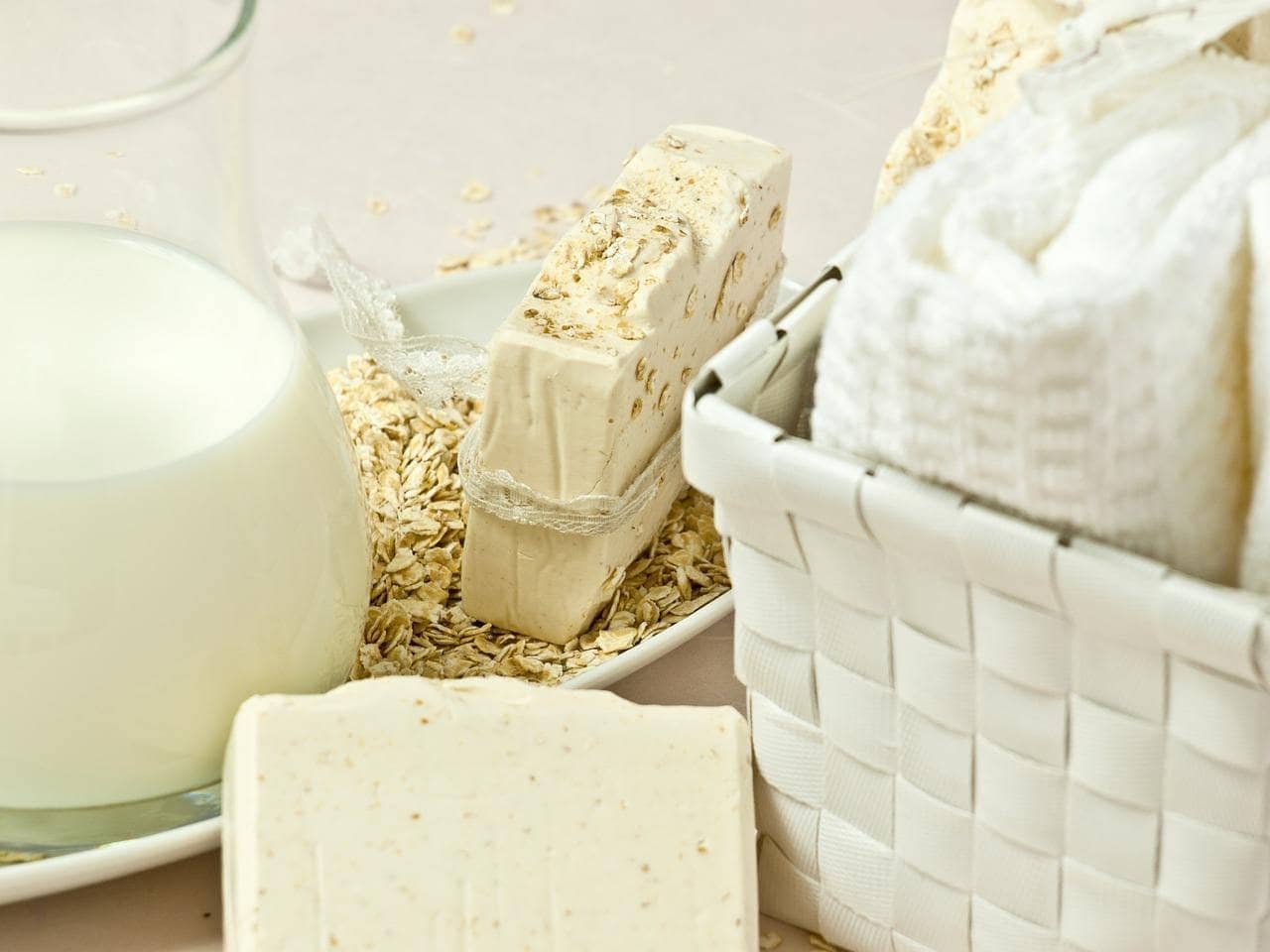
Oatmeal is another common ingredient for itch relief, and you probably remember getting soothing oatmeal baths when you were younger and had chickenpox. This remedy can also help reduce your dog’s itchiness.
To use oatmeal most efficiently, you’ll want to use a grinder or pestle and mortar to reduce about 2 to 3 cups of dry oatmeal to a fine powder. Add this to a warm bath and let it sit for 15 minutes. You can then use this warm water and oatmeal mixture to bathe your dog, paying particular attention to their problem areas.
According to health experts at WebMD, “colloidal oatmeal”—which you’ve just made by grinding regular oatmeal into a powder—can be used to ease itching caused by a variety of problems. An oatmeal bath for your pooch is safe, non-toxic, and creates a protective barrier over their skin that will help reduce itching no matter what the cause.
3. Coconut Oil
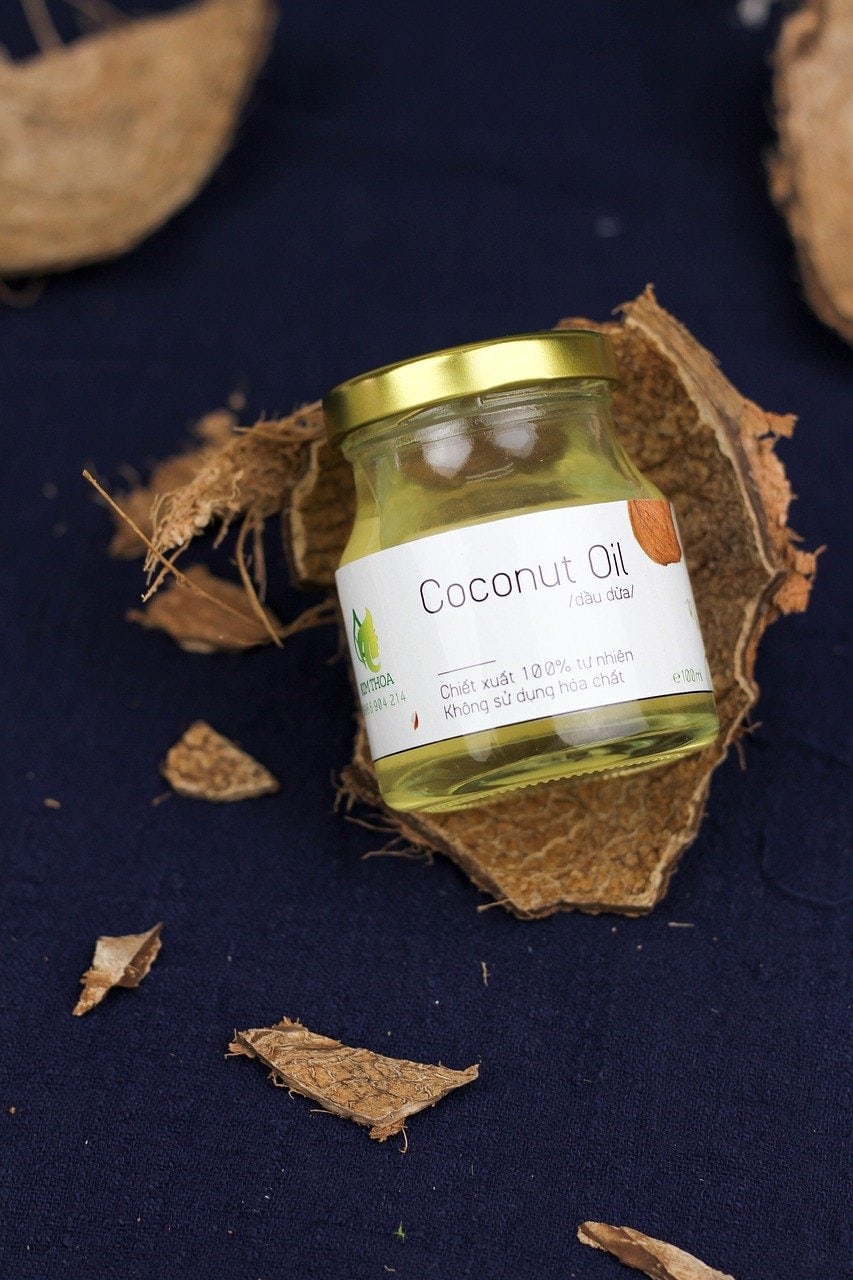
Coconut oil has many uses in cooking, cleaning, and even in beauty products, and now you can also use it to help ease your dog’s itching!
Any coconut oil you buy can be kept in the fridge or a cool place in your home so that it remains solid. Once or twice a day, scoop out some coconut oil, rub it between your hands for a few seconds to warm it up, and then massage it onto your dog’s skin. This can be placed directly onto particularly itchy areas for the most effectiveness, and you can repeat as needed, as it’s totally safe and non-toxic.
This research paper on topical itch relief concludes that coconut oil is a natural anti-inflammatory and antibacterial, and it can help aid in soothing your dog’s skin from a variety of problems that cause constant itching.
4. Epsom Salt Bath
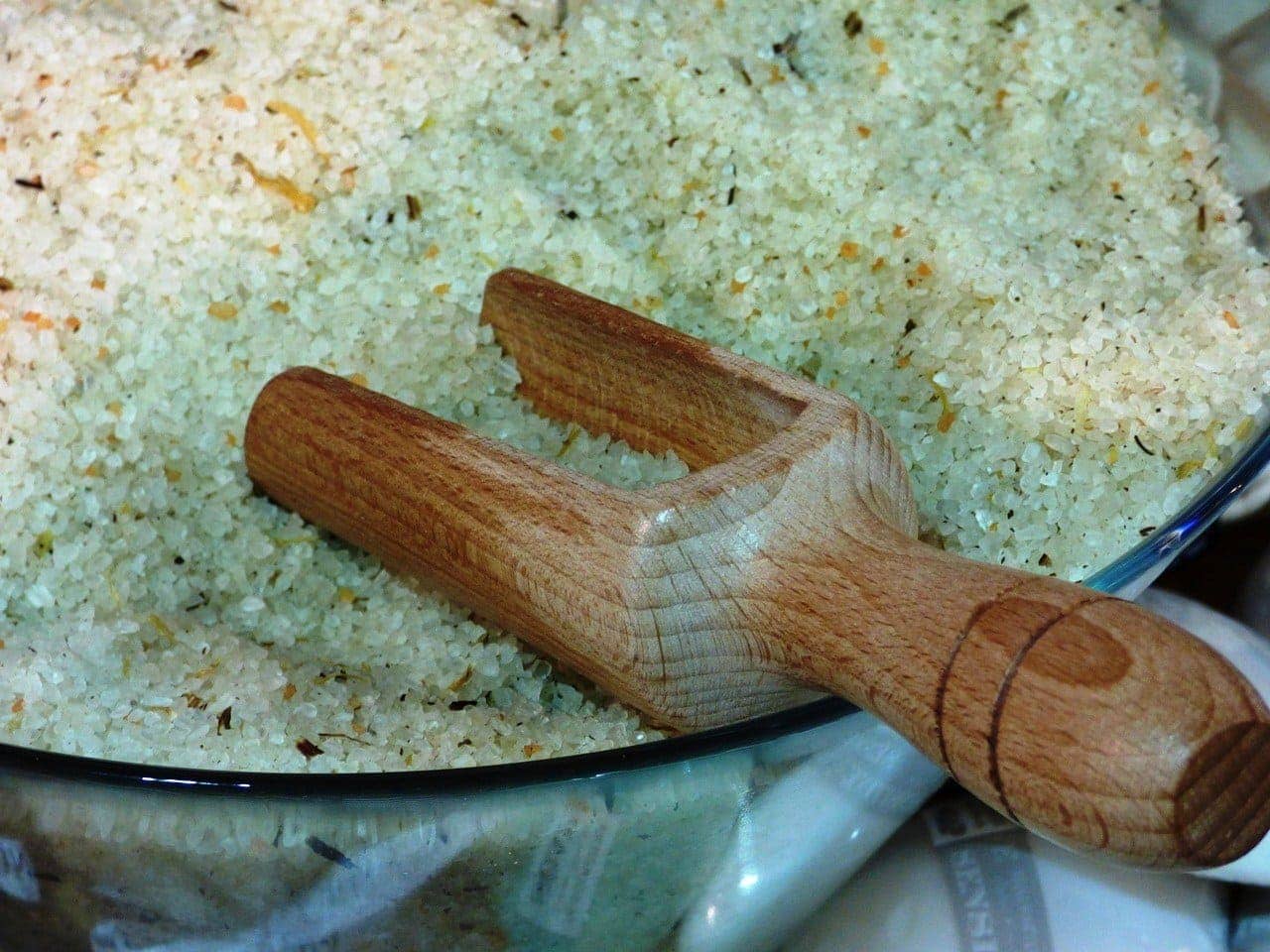
Epsom salt baths are used by humans all the time to relieve itching and topical pain and even speed up the healing of cuts and abrasions, so why not offer the same kind of relief to your pooch?
To prepare this bath, add about a quarter cup of Epsom salt for every five gallons of warm water, and have your dog soak for about 10 minutes. Make sure the affected areas are submerged in the Epsom salt bath or use a cup or bowl to continuously pour the bathwater over the areas that seem to be giving your dog the most trouble.
The health benefits of soaking in Epsom salt have been clear for decades, and this article from Healthline.com specifically states that Epsom salt baths are great for reducing itching. Perhaps the biggest benefit of using this method is that it’s safe to apply Epsom salt bathwater even to open sores or cuts from scratching, and it won’t cause your pooch any harm or pain in the process! However, you must make sure your dog does not drink the Epsom salt bathwater as it would cause digestive issues.
If you need to speak with a vet right now but can’t get to one, head over to JustAnswer. It’s an online service where you can talk to a vet in real time and get the personalized advice you need for your pet — all at an affordable price!
5. Calendula

Calendula is known to be a soothing and anti-inflammatory ingredient, and this Healthine.com article suggests that it can improve skin health and promote healing.
There are two ways to go about using calendula to help ease your dog’s itching. The first is to submerge about five or six calendula tea bags in warm bath water for around 15 minutes. Remove the tea bags and let your furry friend soak in the water. You can help reach affected areas by scooping up some water and rinsing their irritated skin that isn’t submerged.
Another option is to buy some calendula tincture, add 5–10 drops to 2 or 3 cups of water, and use a spray bottle to apply to your dog’s itchiest areas once or twice a day. Make sure not to get this spray in your dog’s eyes or ears.
6. Aloe Vera
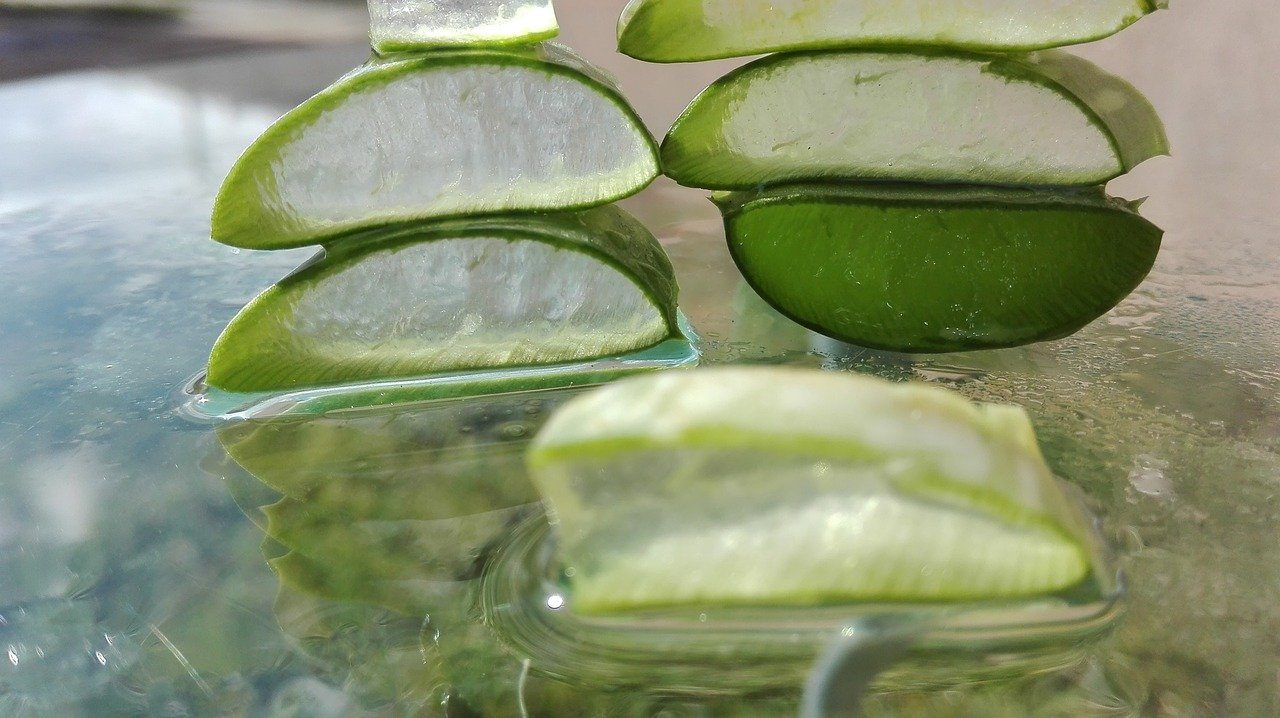
Aloe vera is used by humans all the time to reduce itchiness and pain associated with sunburn, and it can be used for your dog’s skin as well, regardless of the source or underlying cause of itchiness.
Aloe vera can be purchased in gels that are easy to apply, or it can be harvested from an aloe vera plant if you have one at home. Simply apply the gel or juices from an aloe vera plant leaf to your dog’s itchy areas of skin. If you opt to use the plant, please use only the gel part in the center. The rim and the yellow portion between the gel and the rim contain toxic compounds called anthraquinones. Carefully discard those parts where your dog can not reach them. If you do choose a gel, make sure that it’s 100% aloe vera and doesn’t contain any alcohol. Some aloe vera products designed for human use have alcohol in them, and this can exacerbate itchiness rather than soothing it.
This research study notes that aloe vera is a good cure for skin ailments and itchiness and that common aloe vera gels can act as a natural anti-inflammatory and anti-bacterial as well.
- Does your dog do the butt scoot? Find out why here!
7. Baking Soda
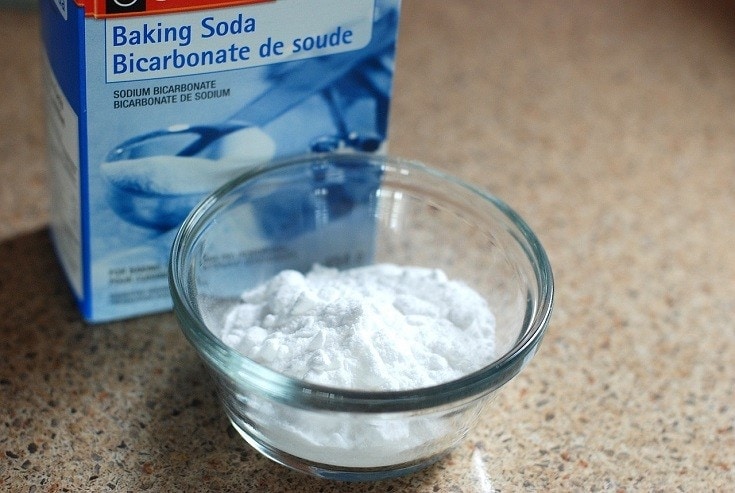
Baking soda is another very common household product that you probably have in your pantry or cabinet, and you can easily repurpose it to help reduce your dog’s itching from skin allergies or other ailments.
Mix together one part baking soda and one part water to create a thick paste, and then apply this paste in a thin layer to your dog’s itchy skin. Make sure to rub the mixture in through your pup’s fur to get it directly on the affected area. Let this paste sit on your pooch for about 15 minutes, and then rinse clean. Please make sure the dog does not lick the baking soda off its skin.
This article from the University of Wisconsin’s School of Medicine and Public Health suggests that baking soda can naturally reduce itching and skin irritation, so this is a great home remedy for those who have the ingredient at home and are looking for a quick fix!
8. Proper Diet

Some skin allergies in dogs can be caused by their diet, even if they’re eating commercial dog food on a regular basis.
While dogs survive mostly on protein, they can be allergic to specific sources of protein, including fish, chicken, and even beef. You can consult your vet to find out what your dog may be allergic to in their food, or you can try a limited-ingredient commercial food based on a different protein source than the one your dog normally consumes.
Get 50% off your first box!

You might also like: Best Dog Foods for Allergies – Reviews & Top Picks
9. Vitamin E

Vitamin E is often one of the first things we think of for topical application on irritated skin, and it’s safe and effective for treating your dog’s itchy skin as well!
Vitamin E oil is available at most health stores, pharmacies, and even grocery stores, so pick up a small bottle and apply a few drops of pure vitamin E oil to your dog’s itchy skin. Massage the oil in for the best results. Alternatively, you can add a few drops to a spray bottle with a cup or two of warm water, shake, and spray onto any affected areas. Shake regularly during application to make sure the oil mixes with the water, and always make sure to avoid spraying the mixture into or near your dog’s eyes or ears.
We may often think vitamin E oil is best for moisturizing skin, but this article published on WebMD suggests that it can also reduce itching and decrease irritation.
Dog Itching Remedies: Final Thoughts
Although a vet visit should be scheduled to rule out any major problems, skin irritation in your dog can be common due to a variety of reasons. If your pup suffers from seasonal allergies, dry skin, or regular itchiness, use one of these natural home remedies to provide them some relief and soothing comfort.
You can try each of these out to find the most effective method, or you can combine a few of these anti-itch remedies for the best results.
Featured Image Credit: schubbel, Shutterstock




